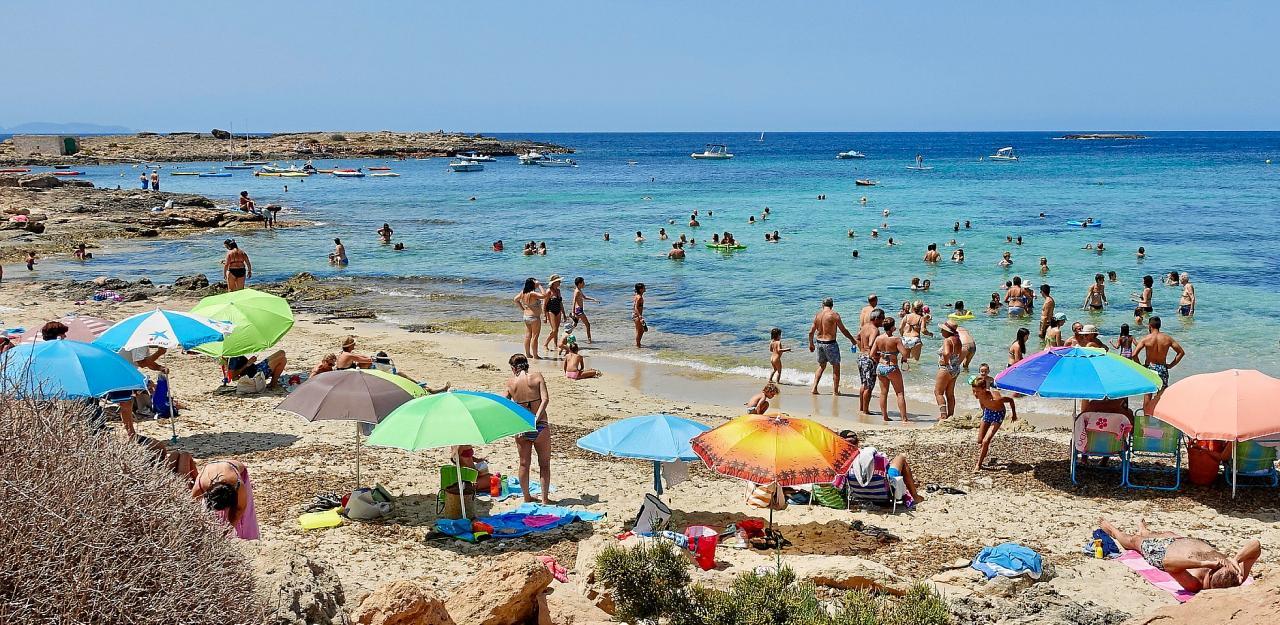Although the number of tourists in Mallorca and the Balearics is up this year compared with 2022, the time they are spending on the islands has fallen, while there are suggestions that their spending has fallen sharply.
The most recent official figures relate to the first five months of 2023. Accepting that Covid was still a factor in the early part of 2022, there was nevertheless a 10.75% fall in the average length of stay - six days, according to Balearic tourism ministry figures. In terms of spending, the overall spend for January to May was up 11.5%, but spend per tourist for virtually all markets was down. The greatest decrease, almost 20%, was Switzerland. For the two main foreign markets, Germany and the UK, it was down 2.7% and 5.7% respectively.
For the busier months of June and July, it is impossible to say with any accuracy what the spending levels have been and are; there aren't official statistics as yet. But as far as certain sectors are concerned - distributors and retailers - it is said that consumption has fallen by 15%. The restaurants, while not offering a figure, point to lower spending than last year.
However, the president of the distributors association, Ezequiel Horrach, believes that this is a "normal season" and that last year there was an unusually high level of spending post-pandemic. Both the shops and the restaurants concede that the weather has influenced spending.
When it comes to length of stay, Maria Frontera of the Mallorca Hoteliers Federation says that there is a trend towards tourists taking more breaks each year but for shorter periods. There has also been an increase in hotel direct sales. Whereas tour operator packages have fixed numbers of days, this is clearly not the case with direct bookings, which do tend to be for shorter periods.
Inflation, naturally enough, is cited as a reason for wishing to curb spending, and Germany - the largest foreign market - is regularly being mentioned in this regard. But inflation affects other markets. As noted, up to May the fall in spending per person was lower for the German market than for others. And inflation can obviously mean higher spending because of higher prices. Total tourist spending from January to May was up 11.5%, influenced by higher prices but also by the fact that there were more 15% more tourists.


4 comments
To be able to write a comment, you have to be registered and logged in
james mcgurkI don't think anyone "hates" the Brits. It's more likely that your feeling of "not belonging" is the result of insularity, and also because compared to the rest of the world, Brits account for a minor fraction of tourism, tend to expect exceptional treatment while seeking the cheapest, and complain a lot. It's not the most desirable tourist profile. So, it's more likely just indifference rather than "hate". @jeremy. At around 500€ per night we're more in the mid range. Also, we almost never have any British guests, so that may be a factor. The trend (excepting Brits) seems to be moving to the higher end, and longer stays. I realise that's not important to Brits, but it is the reverse of what this article implies.
@Morgan, Agree, I think the low end stuff like yours is holding up.
Funny, we're experiencing the opposite. It used to be that 5 nights was the sweet spot. This year in particular, it's been 7-10 nights almost exclusively. And this is the only year in our history that we've had more than 2 one month+ bookings. On top of that, like everyone else, we've raised our prices considerably. Yet we're now receiving bookings for April, May and June 2024. They sure don't act like they're all that price sensitive. Or booking shorter stays. (?)
Don't understand why the British, holiday and spend money on this island when it's obvious that that the Spanish hate us .